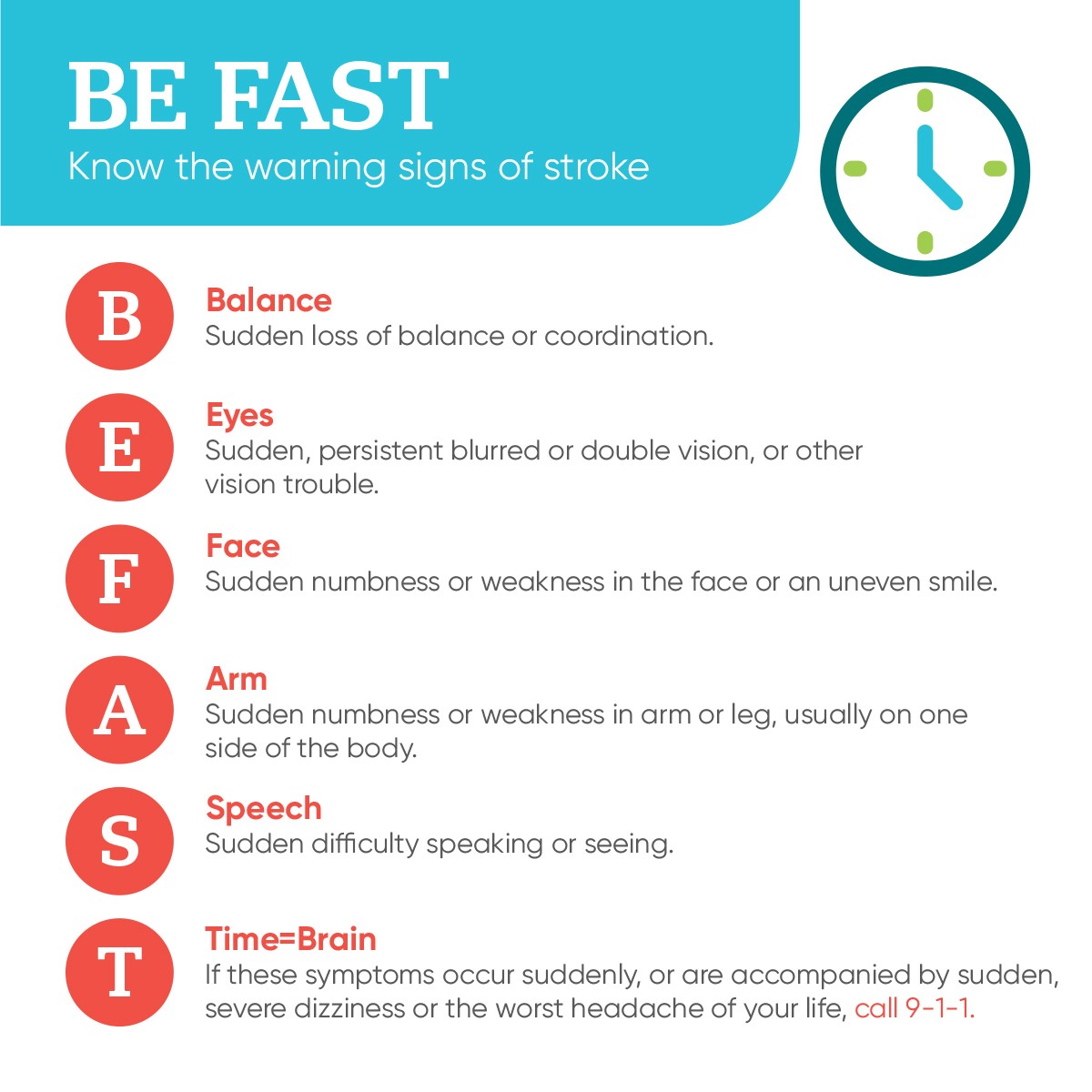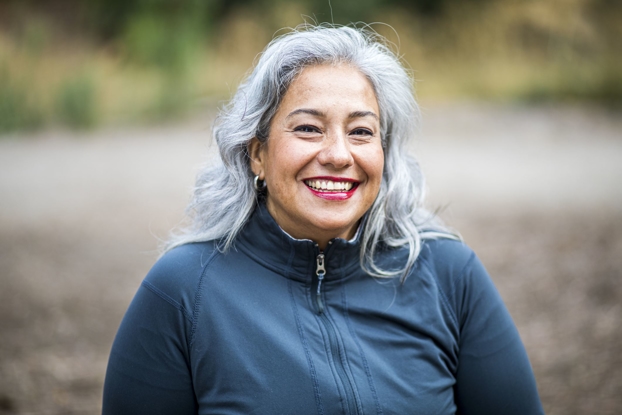Stroke Awareness Month
- Category: Stroke
- Posted On:
.1).jpg)
Louisiana, we need to talk about lowering stroke risk
May is Stroke Awareness Month, and here in New Orleans we take that seriously. All month, we’ll be sharing the info you need to know about stroke risks, symptoms, and prevention strategies. Remember, when it comes to stroke, you’ve got to B.E. F.A.S.T!
Did you know we live in the “Stroke Belt?"
It’s not exactly what we want our beautiful communities and state to be known for, but unfortunately, Louisiana is part of what researchers refer to as the “Stroke Belt." Consisting of a swath of southern states, people living in this region (particularly in LA) are unfortunately at higher risk of stroke and stroke death than others in the country.
Strokes aren’t just a Louisiana problem…
Stroke is a leading cause of death in the United States, and the number one cause of disability in adults. Every 40 seconds, a stroke happens—and almost 130,000 people die from stroke per year.
To make things complicated, some stroke risk factors are out of our control. While anyone can have a stroke, regardless of age, ethnicity, or gender, some individuals are at higher risk of stroke than others.
For example, the incidence of stroke is twice as high for African Americans than for White Americans. African Americans are also more likely to suffer more extensive physical deficits following a stroke. In addition, Mexican Americans are also at higher risk for all types of strokes at younger ages than White Americans.
Risk of stroke is higher for:
- Women
- African American’s
- People over the age of 55
- Those who have previously had a TIA (Transient Ischemic Attack) or stroke
- Those who have a family history of stroke

But Louisiana residents are extra-vulnerable
Our home state is known for many things: our festivals and special events, our delicious cuisine, and our “laissez les bons temps rouler” approach to life. While these things are part of the charm of living in LA, they may also contribute to a lifestyle that lends itself to higher stroke risk.

Top issues that lead to increased stroke risk include:
- Smoking
- Drinking alcohol (more than 2 drinks a day)
- Using illegal drugs
- Unhealthy diets that are high in fat and salt
- Not getting enough physical activity
- Being overweight
- High blood pressure
- Diabetes
- Elevated cholesterol
- Arterial fibrillation (a type of irregular heartbeat)
- Sleep apnea
MORE: Understanding your risk for stroke
Hold up, what exactly is a stroke?
A stroke is a “brain attack." It happens when blood flow to the brain is cut off. Our brains require a constant supply of oxygen-rich blood to function at 100%, and any disruption to that flow can cause rapid, serious damage. For every minute a stroke is occurring, up to 2 million brain cells die. A rapid response is essential to successful treatment and recovery. Every second counts.
There are two different types of strokes:
An ischemic stroke occurs when the artery that carries blood to the brain becomes clogged or blocked by plaque or a blood clot. The most common type of stroke, ischemic strokes cause 87% of stroke cases.
Hemorrhagic strokes are less common, but just as dangerous. This type of stroke occurs when the artery “bursts," allowing leaking blood to put too much pressure on the brain.
What are the signs of stroke?
It’s important to know the signs of stroke, so you can quickly identify when it’s happening as quickly as possible. To remember and identify the telltale symptoms, remember to: B.E. F.A.S.T.

What can I do to lower my risk of stroke?
While some risk factors like race or older age are outside of your control, there are many things you can do to lower your stroke risk—even if you live here in Louisiana! Here are our top tips:
- If you smoke, QUIT
- Cut back on alcohol as much as possible
- Eat a nutritious, varied diet with plenty of fresh fruits and vegetables, fiber-rich whole grains, and lean proteins
- Exercise regularly; make movement and physical activity a part of every day
- Watch your cholesterol levels
- Work with a healthcare provider to manage health conditions like high blood pressure or diabetes
- Maintain a healthy weight for you

Making these changes won’t just lower your risk of stroke—it can also lower your chance of developing other health issues like heart disease or diabetes. So, it just makes sense to incorporate them into your life as much as you can.
Let’s do what we can to ditch our “Stroke Belt” status
Get to know your risk factors and talk to your doc about what steps to take to control the things you can. And always remember: if you suspect you or someone else may be having a stroke, B.E. F.A.S.T! Be sure to visit Stroke Care for more information.
About Toni Rougeou

Toni Rougeou, RN, is the Stroke Program Coordinator for University Medical Center New Orleans. University Medical Center is an Advanced Primary Stroke Center with a full stroke team on call 24/7 to immediately care for patients with stroke symptoms.


